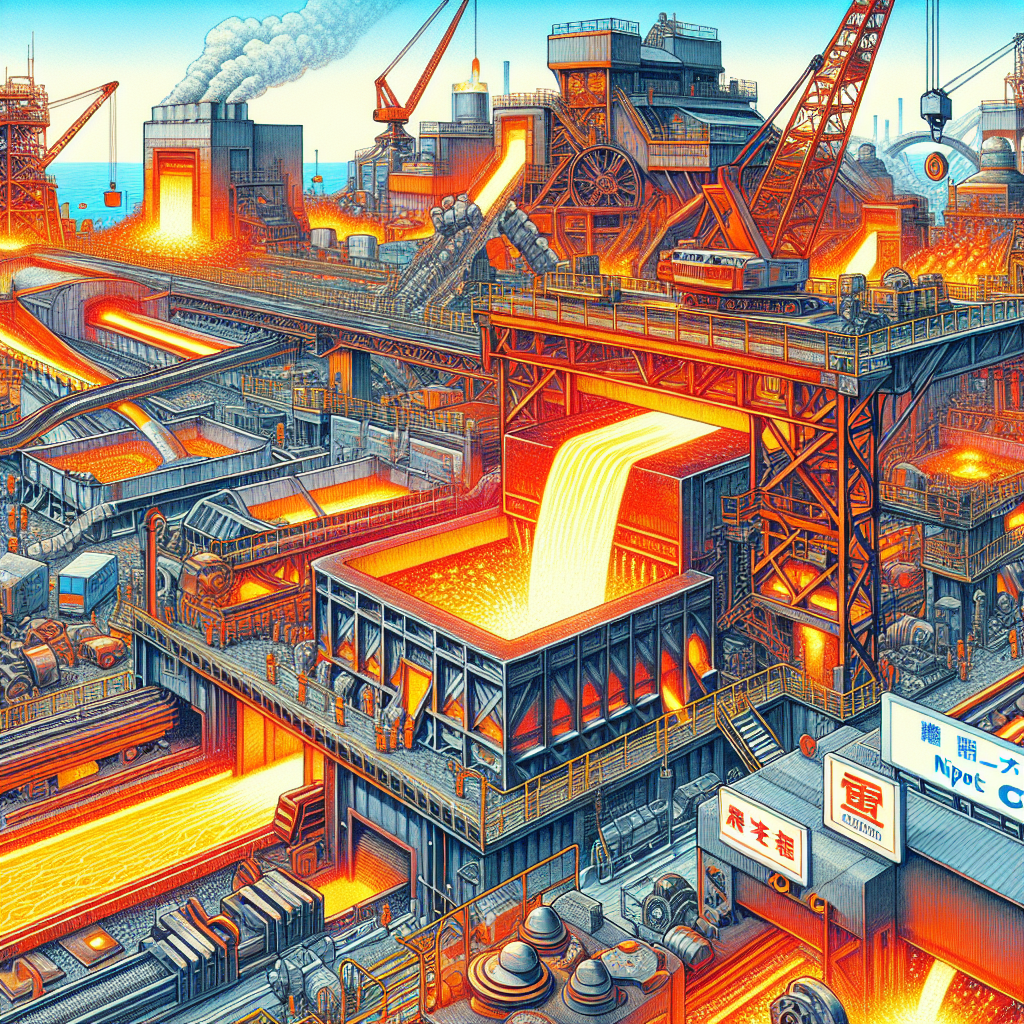Nippon Steel Urges Tokyo to Curb Cheap Chinese Steel Imports Amid Expansive US Acquisition
Nippon Steel, alongside other Japanese steel companies, is pushing for Tokyo to limit cheap Chinese steel imports to protect the local market. Vice Chairman Takahiro Mori highlights the expansion strategy involving the acquisition of U.S. Steel and efforts to gain political support in the U.S., while also increasing self-sufficiency in coking coal.

Nippon Steel and other Japanese steelmakers are urging Tokyo to consider curbing cheap steel imports coming from China, the world's biggest steel producer, to protect the local market, said Vice Chairman Takahiro Mori in an interview.
As Nippon Steel tries to close its acquisition of U.S. Steel, key to its global expansion, Mori, who is the lead negotiator for the deal, also gained support of Minnesota Governor Tim Walz for the takeover during a meeting in June. China's steel exports rose 24% to 53.4 million tons in the first half of 2024 and are on track for 100 million tons for the year. Imports of ordinary steel by Japan, the world's No.3 producer, surged 17% to 1.32 million metric tons in April-June, with imports from China jumping 43%, according to the Japan Iron and Steel Federation data.
Mori predicted China's steel exports could rise further as local demand drops by about 30 million tons annually amid a slumping property sector. "We are lobbying the government to consider measures including anti-dumping duties," Mori said, noting that other countries like the United States, Europe, and South Korea have already implemented trade policies to restrict Chinese steel imports. "Only Japan is exposed. We are in a very dangerous situation... If we don't protect it, the Japanese market will go wrong."
Any action to curb imports would be unusual for Japan, which is more often the target of anti-dumping actions by other countries regarding steel. The world's fourth-biggest steelmaker is eager to close the $14.9 billion acquisition of U.S. Steel by the end of 2024, which should add 30-40 billion yen ($208-$277 million) to Nippon Steel's profit in the January-March quarter, Mori said. The acquisition, which faces opposition from some powerful Democrats and Republicans including presidential candidate Donald Trump, is not included in Nippon Steel's net profit forecast of 340 billion yen for the current fiscal year.
Mori, who visited the U.S. five times this year to talk to various stakeholders, met Walz at a U.S. Steel plant opening ceremony in Minnesota in June, before Democratic presidential candidate Kamala Harris picked him as her running mate. "Walz welcomed investment in Minnesota and showed a very strong interest in U.S.-Japan relations," Mori said, adding that Walz expressed his support for the acquisition deal at the time.
To gain support from politicians and labor unions, Nippon Steel hired former U.S. Secretary of State Mike Pompeo as an advisor and unveiled a plan to invest an additional $1.3 billion in U.S. Steel's mills. Furthermore, Nippon Steel agreed with Whitehaven Coal to buy a 20% stake in the Blackwater coking coal mine in Australia for $720 million, boosting its self-sufficiency ratio of the key steel-making ingredient to 35%. Nippon Steel targets a ratio above 40% to offset the impact of raw material prices. "We'll consider buying more interests in coking coal mines if a good deal emerges," Mori said.
He declined to comment on whether the company would bid for Anglo American's coking coal assets. ($1 = 144.5600 yen)
(With inputs from agencies.)
ALSO READ
South Korea's Economic Concerns Over Trump's Trade Policies
Ukraine's key coking coal mine still operating as Russians close in
Rosneft Chief Backs Trump's Trade Policies as 'Adequate'
Coking Coal Crisis: Metinvest Halts Operations Amid Advancing Conflict
Ukraine's Coking Coal Dilemma: A Steel Industry's Standoff










